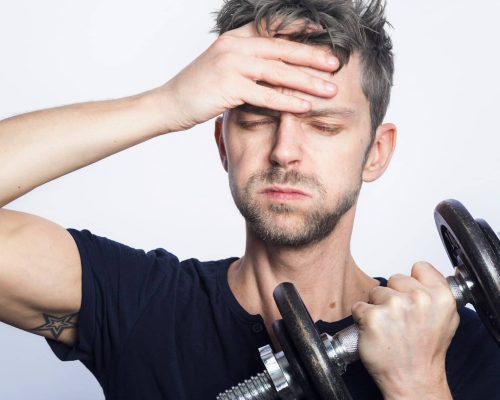Importance of Quality Sleep
Understanding Sleep Needs
You might think you can thrive on just a few hours of shut-eye, but research tells a different story. Adults need to catch at least seven hours of Z’s a night for tip-top health, while some folks boast about getting by on four or five (Mayo Clinic). And if you’re chasing those extra energy reserves, aiming for seven to eight hours should do the trick.
| Age Group | Recommended Hours of Sleep |
|---|---|
| Adults | 7-8 hours |
| Teenagers | 8-10 hours |
| School-aged kids | 9-12 hours |
| Preschoolers | 10-13 hours |
Kids? Don’t even get us started—they need even more sleep for all that growing and brain-building. It’s not just about clocked hours; setting a regular bedtime and wake-up routine can work wonders for you and the kiddos alike.
Impact of Sleep Quality
Your shut-eye quality affects everything from your crankiness level to long-term health. A bedroom that’s too hot, bright, or noisy can mess with your beauty sleep (EG Healthcare). These nuisances can leave you groggy and far from refreshed the next day.
| Factor | What’s Messin’ Your Sleep? |
|---|---|
| Temperature | Either sweating or shivering |
| Light | Too much brightness |
| Noise | Sounds or deafening silence |
Regularly skimping on sleep? That could bring on nagging issues like anxiety and irritability, even messing with your mood (Centers for Disease Control and Prevention (CDC)). As you age, your sleep can turn troublesome, affecting both how you feel and live. Consistent lack of rest has been tied to some big-time health problems, like weight gain, high blood pressure, heart issues, diabetes, and mental health woes (Harvard Health Publishing).
Catching better sleep isn’t just about improving mood; it’s crucial in managing neurological disorders too, such as Alzheimer’s. Fixing sleep issues early could help stave off the progression.
Better sleep can lead to all sorts of perks. Check out more of our wisdom on snagging solid snooze time in our sleep hygiene tips and explore the benefits of good sleep. For tackling specific sleep struggles, peek at our guide on identifying sleep issues.
Lifestyle Habits for Better Sleep
Catching quality Z’s is no joke, playing a huge role in how you feel and function. Shake things up with some proven lifestyle tweaks to snooze more soundly for longer stretches.
Physical Activity
Here’s the deal: busting a move, especially first thing, not only kick-starts your day but also gets your body’s internal clock ticking right on time, setting you up for deeper, more restful nights of sleep. You can get active any time of day, here’s a rundown of some moves that’ll have you counting sheep in no time:
- Cardio workouts (like running, swimming, biking)
- Strength exercises (weight lifting, resistance bands)
- Yoga and stretching (hello, flexibility and relaxation)
For the low-down on specific exercises that’ll up your snooze game, head over to our exercises for better sleep page.
Diet and Nutrition
What you chow down on can either make or break your sleep. Loading up on veggies, fruits, legumes, whole grains, nuts, and fish while cutting back on processed meats, sugary drinks, and junky fats is a sure-fire way to sleep like a baby. Here’s the scoop:
- Fiber: A fibrous diet means your deep sleep game is strong.
- Saturated fat & sugary drinks: These are basically sleep thieves.
| Food Type | Sleep Effect |
|---|---|
| Fiber-rich foods | Better deep sleep |
| Saturated fat | Less deep sleep |
| Sugary drinks | Goodbye, restful sleep |
| Whole grains | Sleep win |
For more deets on food that sets you up for sleep success, take a look at our sleep hygiene tips.
Relaxation Techniques
Creating a chill-out zone before bed can turn your sleep from shaky to solid. These unwinding activities help ease your mind and body into shutdown mode:
- Meditation
- Deep breathing exercises
- Writing or journaling
- Practicing gratitude
These routines don’t just set the stage for better sleep—they’re also a boost for your mental health. Explore more on meditation through our meditation for better sleep and ways to relax before bed.
Making these habits part of your daily grind could have you sleeping like a log and feeling top-notch. For more sleep hacks, visit our pages on how to get better sleep, better sleep habits, and check out the benefits of good sleep.
Creating a Restful Environment
Getting some quality shut-eye is more than just a wishful dream; you can actually design your bedroom to boost your sleep game. Let’s talk about how you can make your sleeping space a snooze-friendly paradise.
Bedroom Environment
Think of your bedroom as a sleep-only zone. If it’s not cozy, you might wake up feeling like you’ve barely slept. You need your sleep cave:
- Dim the Lights: Keep it dark, like you’re trying to save power. Blackout curtains or a fancy sleep mask can work wonders.
- Quiet Time: Turn down the noise like you’re at a library. Earplugs or a white noise machine can silence the chaos.
- Breathe Easy: Good airflow makes a big difference. No one wants stale air, right?
Avoiding Screen Time
Tech gadgets in bed are a nightmare in disguise. Screens mess with your internal clock, thanks to that pesky blue light. Stay savvy and keep tech at bay:
- Ban the Gadgets: Make it a no-phone zone.
- Screen-Free Wind Down: Swap screen time with some light reading or a peaceful meditation session.
- Cut the Blue: Blue light filters or glasses are your friends.
Not sure how to ditch screens? Scope out our guide on kicking the tech habit before bed ways to relax before bed.
Temperature and Noise Control
Warm and noisy don’t go hand-in-hand with sleep, like peanut butter and pickles. You want it cool and quiet. The perfect sleep temperature is about 65°F (18°C). Less noise means more Zzz’s.
| Thing | Best Bet |
|---|---|
| Temperature | Aim for 65°F (18.3°C) |
| Noise | Plug those ears or use a noise box |
| Light | Go for those blackout curtains |
Additional Tips
- Stick to a Schedule: Hit the sack and wake up at the same time every day.
- Cozy Bedding: Spend a bit extra on a good mattress and pillows. You spend a third of your life there!
- Allergen Alert: Regular cleaning can help you breathe better at night.
Making your bedroom a haven is key to unlocking restful sleep. For more on keeping your sleep hygiene on point, dive into our articles sleep hygiene tips and sleep and mental health.
Addressing Common Sleep Problems
Getting a good night’s sleep can feel like chasing a dream when sleep issues refuse to budge. Let’s dive into three common ones and explore ways to tackle them and catch those elusive Z’s.
Insomnia
If you’ve ever spent a night staring at the ceiling or wrestling with your pillow, you know insomnia. It’s that frustrating inability to fall asleep or stay snoozing, leaving you dragging the next day. Whether it’s stress, erratic bedtime habits, or a haphazard sleep schedule, insomnia can throw a wrench into your night’s rest.
Tips for managing insomnia:
- Try hitting the hay at the same time every night. Routine is your friend.
- Keep naps short and sweet—like under an hour—and don’t nap too late (Mayo Clinic).
- Develop a chill-out bedtime ritual. A cup of herbal tea, anyone?
- Kick caffeine and midnight snacks to the curb.
- Consider a little meditation to wind down.
Sleep Apnea
Imagine feeling like a fish out of water while sleeping—that’s sleep apnea for you. It interrupts your breathing, making your slumber feel more like a series of frantic naps. You might wake up groggy or with a pounding headache. This condition isn’t picky; it affects both men and women, especially if there’s snoring in the mix.
Symptoms of sleep apnea:
- Snoring that could wake the neighbors
- Holding your breath while you snooze
- Gasping like you’re running a marathon in your sleep
- Morning-after head-throb
- Sleepiness during the day
Managing sleep apnea:
- Shedding a few pounds can help.
- Skip on booze and butts.
- Try a CPAP machine if your doc suggests it.
- Have a chat with your doctor about surgical options if necessary.
Restless Legs Syndrome (RLS)
Restless legs syndrome is like an itch you just can’t scratch away. Your legs feel all creepy-crawly at night, making sleep as appealing as a dentist appointment. This can hit anyone but seems to favor women and might knock on the door of heart and mental health.
Symptoms of RLS:
- Legs feel like they have ants in their pants
- Need to move legs to calm the sensations
- Gets worse when the sun goes down
- Relief when you finally get moving
Managing RLS:
- Stick to a regular snooze schedule.
- Get a move on with some moderate exercise (Mayo Clinic).
- Steer clear of caffeine and booze.
- Talk to a doc about meds if needed.
Facing these sleep saboteurs head-on can really ramp up your sleep quality—and your days, too. For more juicy info, check out better sleep tips, sleep-friendly habits, and practical sleep strategies.
Effects of Technology on Sleep
Tech gadgets—they’re everywhere, right? You’ve probably heard that these little screens can mess with your sleep. But let’s break it down so you can catch some proper zzz’s without tossing and turning all night.
Electronic Devices in the Bedroom
Ever notice how your phone seems to have a party while you’re trying to sleep? According to the Sleep Foundation, the average U.S. household holds five gadgets, and almost 1 in 5 homes are gadget-ville with 10 or more. Snuggling up with these devices isn’t doing your sleep any favors.
-
Blue Light Emission: Those glowing screens? They’re sneaky. Blue light tricks your brain into thinking it’s daytime, messing with melatonin, the sleep hormone. It’s like trying to nap under a sunlamp—just doesn’t work.
-
Disruptive Notifications: Ever have a dream interrupted by that “ding”? Keeping gadgets close to bed is like inviting a rooster to your slumber party. All those pings and buzzes feel like constant interruptions.
-
Overstimulation: Watching funny cat videos late at night (guilty as charged) seems fun, but it gets your brain all revved up. Pre-bed screen time leaves your mind racing instead of slowing down.
For that dreamy sleep, maybe try banning your devices from your bedroom. Think of it as a no-tech zone for maximum relaxation. Need more tips? Check our sleep hygiene tips and get your bed back to its chill vibe.
Impact of Screen Time
Screen time isn’t just a timekiller—it’s a sleep killer too. Scrolling through your feeds before bed? Yea, that’s why you’re counting sheep rather than logging snooze hours.
| Factor | Effect on Sleep |
|---|---|
| Blue Light Emission | Blocks melatonin, that sleep helper |
| Notifications | Interrupts your slumber |
| Mental Stimulation | Keeps your mind on its toes (or fingers) |
-
Blue Light: Researchers show that blue light keeps you alert and delays REM sleep. REM is super important for, well, being a functioning human being. Cutting down on screen time at night can be a game-changer.
-
Content Consumption: If your idea of a nightcap is watching a thriller, well, good luck dozing off peacefully. Wild plots and nail-biters kick your adrenaline up a notch.
-
Usage Duration: Spending ages glued to screens leads to poor sleep. The rule of thumb? Put your devices to bed an hour before you call it a night.
For more tech-free bedtime ideas, visit our guide on ways to relax before bed. Establishing a relaxing nighttime routine can make a world of difference.
With a little know-how and some smart choices, you can improve your sleep quality. If shutting down gadgets still leaves you tossing and turning, maybe it’s time to chat with a sleep pro. For heaps of info, jump to our section on how to get better sleep. Sweet dreams, tech-free!
Seeking Professional Help
If trying out new sleep habits isn’t doing the trick, it might be time to chat with a pro. Talking to healthcare experts can lead you to better sleep and sweet dreams.
Identifying Sleep Issues
Everyone has a rough night now and then, but constantly tossing and turning is a red flag. Stuff like heart trouble, asthma, and diabetes can mess with your sleep (EG Healthcare). These issues might cause discomfort or make your meds turn on you, keeping you up at night.
Lack of zzz’s isn’t just tiring; it messes with your mood and mind, sparking anxiety or crabbiness (CDC). A steady sleep routine can ease these woes. But if you’re losing sleep, it messes with how you remember stuff and make decisions, plus it can stir up intense feelings like sadness or anger (UC Davis Health).
Consulting Healthcare Provider
If sleep problems start messing with your day-to-day, having a chat with a healthcare provider is smart. They’ll check you out and maybe run some tests to find what’s bothering your sleep.
Your healthcare buddy might have tips for better sleep. They could suggest treating any lurking health hiccup, tinkering with meds, or changing some habits. You might even get directed to a sleep expert for extra help.
Good sleep habits aren’t just for grown-ups, but kids need them too. They need even more sleep for growing up healthy (UC Davis Health). Check out our pieces on how to get better sleep and sleep hygiene tips for more help.
Figuring out a plan with your healthcare team can lead to better sleep and overall health, tackling both what’s bugging you now and making you healthier down the line. If your sleep’s still wonky after trying it all, reach out for professional backup.
By spotting sleep trouble and talking to the pros, you’re taking real steps to improve sleep quality and rest easy.










